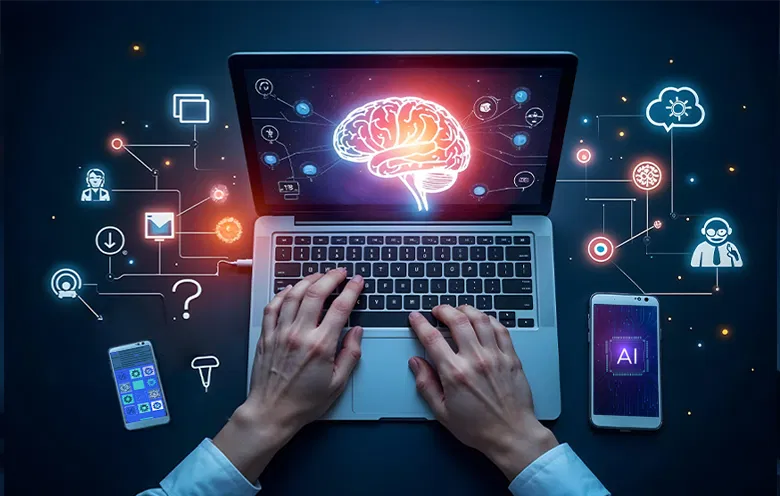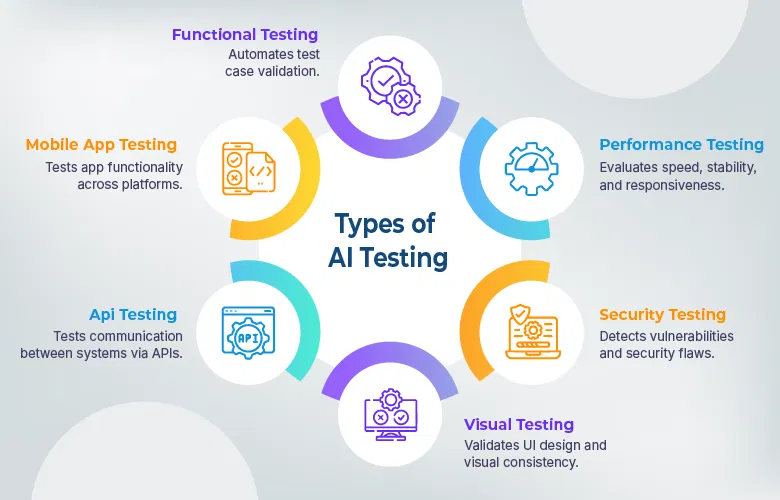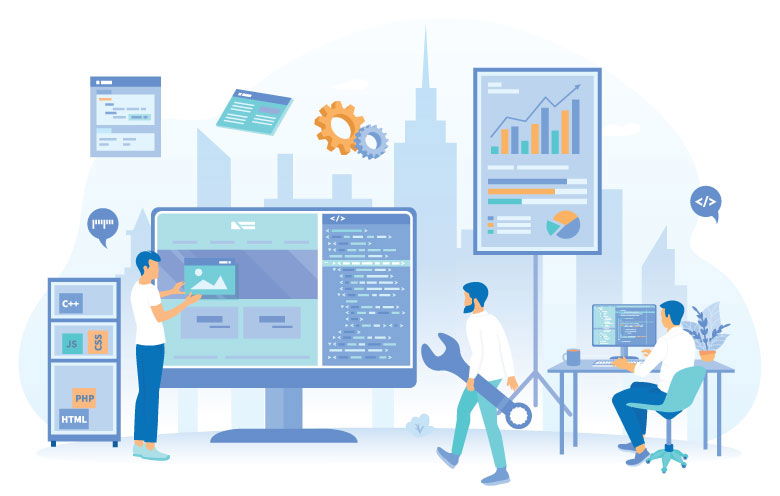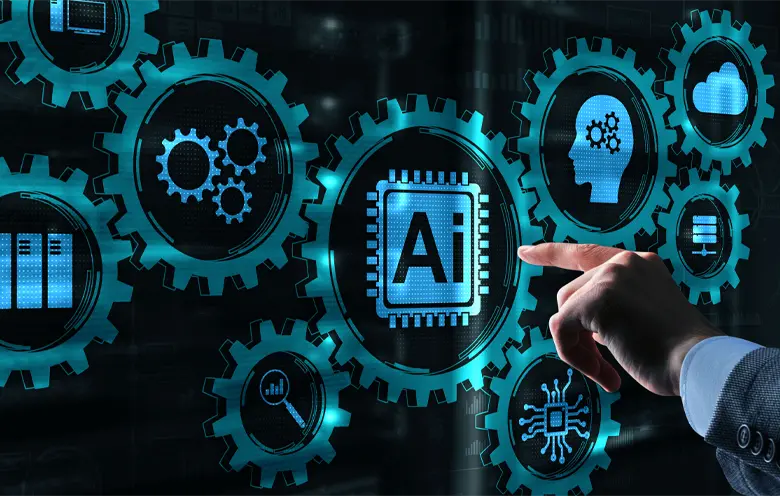Manual testing is a challenging process, but very critical to any project’s success. It often involves repetitive tasks that consume significant time and resources. Testers must manually run test cases, spot issues, and ensure consistent coverage, but this can lead to human error, delays, and scalability issues. Automated software testing addresses these challenges by efficiently navigating vast datasets, significantly enhancing the accuracy, speed, and efficiency of the entire testing process. This revolutionary wave will prove to be a huge milestone in the course to enhance software testing capabilities.
“The only limit to our realization of tomorrow is our doubts of today.” – Franklin D. Roosevelt
This quote perfectly encapsulates the spirit of innovation, especially when applied to the transformative role of AI in software testing today. By eliminating doubts, AI enables teams to achieve higher precision and efficiency in their processes. It opens the door to faster, smarter, and more reliable test automation, enabling businesses to tackle complex scenarios. To fully harness these benefits and ensure peak performance, partnering with expert automated software testing service provider is crucial. In this blog, we will explore how AI can not only optimize your testing processes but also improve accuracy and tackle challenges once thought insurmountable.
How AI is transforming the future of automated software testing
Imagine a diligent assistant that never tires, learns from experience, and spots issues faster than any human could. That’s precisely what AI brings to software testing!
Traditional testing often feels like searching for a needle in a haystack—manual, repetitive, and prone to oversight. AI in automated software testing changes the game by taking over these tedious tasks and handling them with unmatched precision. AI analyzes vast amounts of test data, predicts potential issues, and adapts seamlessly to changes in code or user requirements.
For instance, instead of writing hundreds of test cases manually, AI-powered tools can generate them automatically, prioritizing the ones with the highest risk. Such tools can even spot patterns that hint at future bugs, allowing teams to fix them before they escalate.
Testing isn’t just faster with AI—it’s smarter. Development teams can focus on innovation while AI ensures that software meets the highest quality standards. This synergy makes AI the cornerstone of modern test automation.
Suggested: Discover how AI is shaping the future of software testing and transforming quality assurance in our latest article.
Advantages of AI in software testing
|
Advantage |
Description |
|---|---|
|
Speed-driven test execution |
AI-powered tools automate repetitive tasks, significantly reducing the time required for testing cycles. |
|
Minimizing human errors |
Minimized manual errors by intelligently detecting and addressing bugs with high precision. |
|
Comprehensive test coverage |
Automatically generates and executes diverse test scenarios for more thorough and reliable testing. |
|
AI-powered self-learning |
AI algorithms learn from historical data to continuously improve testing accuracy and efficiency. |
|
Intelligent visual validation |
AI validates UI elements and visual components to ensure seamless user experience. |
|
Instant feedback loops |
Provides instant insights and results during CI/CD pipelines for faster development iterations. |
|
Adaptive self-healing automation |
AI automatically adjusts test scripts when the application undergoes changes, reducing maintenance efforts. |
|
Smarter resource allocation |
Frees up human testers to focus on creative and strategic tasks, optimizing team productivity. |
|
Generative AI for dynamic testing |
Creates test cases and scenarios dynamically based on application behavior and user patterns. |
|
Cost-effective testing solutions |
Reduces expenses by shortening testing cycles and minimizing post-deployment bug fixes. |
Use cases of AI in software testing
- E-commerce websites: In large-scale e-commerce platforms, AI-driven tools automatically run regression tests across thousands of product pages and user flows. Critical features need frequent testing to ensure seamless functionality, especially during high-traffic events like sales. AI can prioritize test cases based on customer behavior, resulting in significant improvements in site performance during such periods.
- Financial institutions: AI in software testing helps banking and fintech apps to ensure security and compliance. AI tools analyze transaction patterns, detect anomalies, and test security protocols without human intervention, improving operational speed and security.
- Retail industry: POS systems, inventory platforms, and mobile apps designed for customer interactions are critical for the retail industry. Companies in this sector leverage AI-driven software testing to ensure that the collective components are performing optimally. AI identifies performance bottlenecks and validates seamless user experiences during peak shopping seasons, like Black Friday, ensuring systems handle high transaction volumes without failures.
- Healthcare software: AI is crucial in validating healthcare software applications, especially when testing complex algorithms for medical diagnostics. AI can simulate various real-world medical scenarios, ensuring the application performs accurately under diverse conditions.
Types of AI Testing:
While AI-driven testing encompasses various types, the following are some of the most impactful and widely adopted approaches:
-
Functional testing
-
Performance testing
-
Security testing
-
Visual testing
-
API testing
-
Mobile app testing
AI validates that the application’s features perform as intended. It identifies bugs early by automating test case generation and execution, ensuring robust software functionality.
AI assesses an application’s speed, responsiveness, and stability under diverse load scenarios, identifying bottlenecks to deliver a smooth and reliable user experience.
Leveraging AI, security testing pinpoints vulnerabilities and ensures compliance, safeguarding systems against unauthorized access and data compromises.
AI streamlines UI validation by inspecting visual elements, identifying inconsistencies, and ensuring a consistent user experience across devices, browsers, and screen sizes.
AI simplifies testing of APIs, ensuring accurate communication between systems, validating request-response correctness, and improving integration reliability.
AI accelerates testing for mobile applications across platforms, devices, and OS versions, guaranteeing compatibility, responsiveness, and performance on all devices.
Popular AI Tools in Software Testing
The software testing market offers a range of AI-powered tools that streamline testing processes, enhance accuracy, and improve efficiency. Here’s a brief overview of some notable tools:
- Applitools: Specializes in AI-driven visual testing, ensuring UI consistency across devices by detecting visual anomalies.
- Testim: Automates test creation and maintenance by learning user interactions and suggesting optimized test scenarios.
- Functionize: A cloud-based tool that leverages AI to automate testing phases, reducing test updates through adaptive learning.
- Mabl: Integrates continuous testing with machine learning to auto-fix tests when UI changes occur.
- Selenium with AI Enhancements: Incorporates AI features to create smarter, adaptable scripts for dynamic applications.
These tools cater to diverse testing needs, offering faster and more efficient testing solutions for modern development workflows.
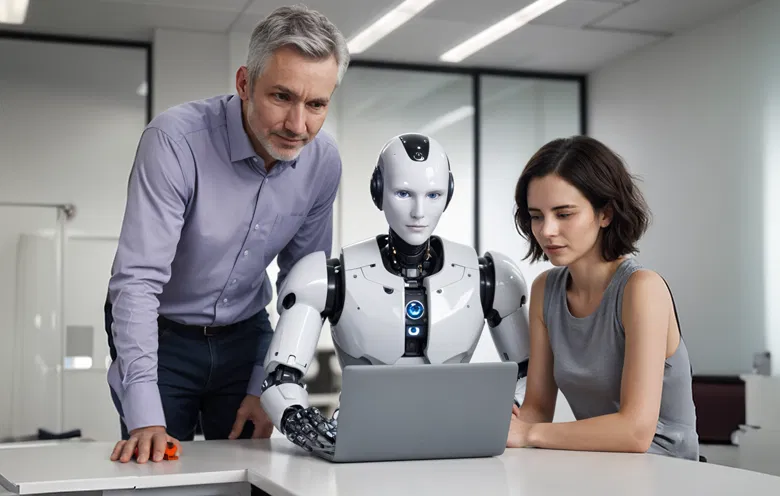
Explore 5 essential insights about AI-driven software testing
- AI in testing for better quality
- Minimal maintenance for visual updates
- Boost test coverage and speed with AI
- AI-driven testing won’t replace testers
Manual software testing vs. AI software testing
| Aspect | Manual software testing | AI software testing |
|---|---|---|
|
Speed |
Slower due to human involvement and time-consuming processes. |
Faster execution with automated tools, reducing testing time. |
|
Accuracy |
Prone to human error, especially in repetitive or complex tasks. |
Higher accuracy with reduced human error and intelligent decision-making. |
|
Scalability |
Limited scalability; challenges in handling large-scale projects. |
Easily scalable, especially with AI tools handling vast datasets. |
|
Adaptability |
Can struggle to keep up with fast changes in software. |
Self-learning capabilities allow AI tools to adapt to changes automatically. |
|
Cost-effectiveness |
Can be more expensive due to time and manual effort. |
Cost-efficient in the long term with automation and fewer manual resources. |
|
Task types |
Best for exploratory and creative testing. |
Excels in repetitive, regression, and large-volume tests. |
|
Real-time feedback |
Slower feedback due to manual test cycles. |
Instant feedback with AI-driven real-time results. |
|
Error detection |
May miss issues due to human oversight. |
More comprehensive error detection with AI’s deep analysis. |
What are the various methods for AI-based software test automation?
- Machine learning (ML) models: ML models browse through code changes as well as past test results to analyze and predict future software issues. Broader software testing strategies are supported by enabling intelligent test prioritization. This ensures that test coverage is both focused and efficient.
- Natural language processing (NLP): Human-readable test scripts are interpreted by NLP and then converted into executable test cases. This ability opens the door for non-technical testers to participate in writing tests using simple, natural language.
- Autonomous test creation: AI-driven tools automate test case creation by analyzing code changes, user behavior, and application logic. These tools can self-generate tests, reducing manual intervention and ensuring comprehensive test coverage.
- Self-healing automation: AI algorithms detect and fix broken tests when changes in the application occur, ensuring that test scripts remain effective over time without requiring manual updates. This significantly reduces maintenance efforts and ensures consistency in automated testing.
- Visual testing and image recognition: AI-based tools use computer vision to validate the user interface (UI) by comparing images of the application’s UI with expected results. This ensures that visual elements display correctly across devices and browsers.
The global AI-enabled testing market size was valued at USD 643.5 million in 2022 and the market is projected to grow from USD 736.8 million in 2023 to USD 2,746.6 million by 2030. – Fortune Business Insights
Navigating the future of AI in software testing
AI automation in software testing is revolutionizing the course for software quality. By harnessing the power of AI, you can not only increase speed and accuracy but also create more efficient paths toward testing excellence. Whether through predictive testing, automated test creation, or intelligent feedback loops, with automated software testing powered by AI, you can navigate the complexities of modern software development with precision and ease.
As organizations seek to implement AI testing, working with a seasoned consulting partner can make all the difference. The strategy around AI testing is very nuanced. For proper execution, it requires fine-tuning of algorithms, seamless integration with existing workflows, and leveraging automated testing as a service to ensure maximum effectiveness.
Softweb Solutions offers top-tier AI testing consulting services, helping businesses unlock the full potential of automated testing. Our team of experts guides you through the intricacies of AI automation, ensuring your testing processes are streamlined, accurate, and scalable. Connect with us to unlock smarter testing solutions!
